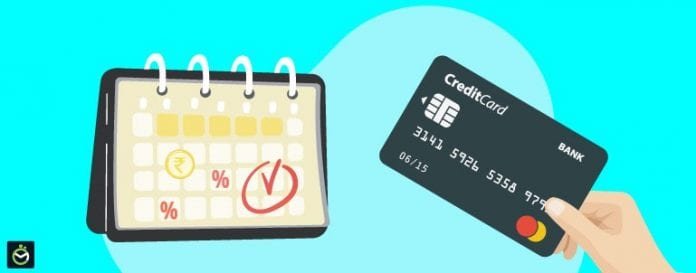Last Updated on March 12, 2024 by admin
You don’t have to be scared of credit cards and forsake them altogether. Instead, you can adopt a few best usage practices to help you get the maximum benefits out of your credit card without the downsides.
Follow the smart tips listed here to make credit cards your best friend:
Table of Contents
Tip #1: Pay your Credit Card Bill in Full Every Month
The golden rule to safe credit card usage is to use it only for what you can afford and pay your bill in full every month. Paying your credit card bill in full offers several benefits like:
- Preventing you from falling into credit card debt
- Avoid paying interest on your purchases
- It helps you build a good credit score over time
You can even pay your credit card bill a few times a month if it helps you pay it on time.
Tip #2: Pay your Bill on Time
Besides settling your credit card bills in full, you have to follow the next rule: pay your bills before the due date. Most credit card companies charge steep penalties for delayed payments. Besides paying penalties, late payments impact your credit score negatively. Remember that 35% of your credit score is based on your payment history, and even a single missed credit card payment has the potential to bring down your credit score.
Smart Credit Card Usage Tip:
If you tend to forget to pay your credit card bills on time, set a reminder on your phone to alert you a couple of days before the due date. Alternatively, adjust your credit card account to automatically deduct the payment from your bank account on a specific date every month.
Tip #3: Make it a habit to monitor your Credit Card Account Frequently
One significant advantage of using credit cards is that they are easier to use when compared to cash. You don’t have to carry around wads of money bills for various purchases. Instead, you can complete your purchases with the swipe of the card (or even contactless payments) and pay for it later.
While there’s no arguing that credit cards are convenient, they can lead you down a slippery slope of debt if you aren’t careful. This is why we recommend checking your credit card account frequently – at least once or twice – every week.
If you notice that you have spent more on your card than what you can repay comfortably, stop using that card until you settle the outstanding balance. Also, checking your account regularly gives you a clear picture of your overall expenditures. Check whether you’re making unnecessary purchases and trim your budget accordingly.
Smart Credit Card Usage Tip:
Most credit card accounts come with handy tools to track and monitor your spending. Use these tools to your advantage and avoid overspending on your card.
Tip #4: Go for Credit Card Balance Transfer to Lower Interest
If you have a large balance on a card with a high interest rate, you can explore a balance transfer. A credit card balance transfer is the process of transferring your outstanding balance from a card with high interest rates to another card with lower interest rates.
Most credit card companies often provide an introductory offer of 0% interest for credit card balance transfers. Paying your previous balance during this initial period is a great way to bring your outstanding to zero without the extra charges.
Make sure to calculate if you’re getting a good deal before opting for a credit card balance transfer.
Tip #5: Use your Credit Card Only for What You Can Afford
This is another unbreakable rule of using credit cards. Credit cards open a world of purchases that weren’t previously available. You can comfortably buy items now and pay for them later. However, using the card without any indiscretion can lead to debt traps.
Your credit card may have a high credit limit, but you need to be cautious and keep your spending within your comfortable repayment limit. Avoid unnecessary and on-the-spur purchases using the card.
Tip #6: Track your Credit Utilisation Ratio
The credit utilisation ratio is a crucial factor in determining your credit score. It’s the ratio of used credit to the total available credit limit. Having a high credit utilisation ratio is seen as a credit hungry behaviour and lowers your credit score. Ideally, aim to keep the credit utilisation ratio below 30% for good credit scores.
Breaching this limit frequently can get you marked as a risky credit user, which in turn impacts future loan eligibilities. Also, having a high credit utilisation ratio affects your future credit card eligibility and credit card limits.
Tip #7: Do Not Have Too Many Credit Cards
Having too many credit cards not only makes it easy to overspend but also becomes challenging to track and monitor. Ideally, avoid holding more than 2 to 3 cards. Of these cards, designate one as your primary card for regular spending and reserve the remaining for emergency spends. However, remember not to close old cards as they are beneficial in boosting your credit score.
Tip #8: Take Advantage of Credit Card Rewards
Another big perk of using credit cards is that you can earn reward points on your daily spends. Every time you use your credit card for grocery purchases, paying utility bills, online shopping, etc., you earn reward points and cashback. Make sure that you are aware of all the rewards offered by your card so that you can use them to your advantage.
Also, keep in mind that these reward points come with an expiry date. So, make sure to redeem the accumulated points for awards or other discounts before they expire.
Tip #9: Upgrade your Card to PIN and Chip Security
Most people are scared to use credit cards because they assume credit cards are not secure and prone to thefts and hacks. You can enhance the security of your card by upgrading it to a new PIN and chip cards. PIN and chip cards are safer than metallic strip magnetic cards. These cards require you to input a PIN/OTP for every transaction, adding an extra layer of security.
Tip #10: Choose the Right Credit Card that Matches your Spending Needs
To enjoy the maximum benefits of your credit card, you need to pick a card that suits your lifestyle and spending habits. For example, if you’re a frequent traveller, then a premium travel credit card with free travel insurance, complimentary lounge access is better suited for your needs.
- Start by identifying your spending pattern – see where the significant chunk of your expenses goes into.
- Then shortlist the best cards for you using a trusted third-party portal like CreditMantri.
- Evaluate the pros and cons of each card, compare the features and fees and choose the best one that suits your needs.
Final Thoughts
Be a savvy, informed credit card user!
A credit card is a powerful financial tool that offers convenience and immense benefits. It helps you buy now and pay later. It can also help you meet financial emergencies when you’re running short of cash. When used smartly, credit cards allow you to earn rewards, discounts and offers on your regular spending.
However, if you aren’t careful, it can lead you down a spiral of mounting debt. But, don’t let credit card debts scare you from using them. Make use of the smart tips listed here to make your credit cards work to your advantage and not against you.
click here for more interesting articles



























